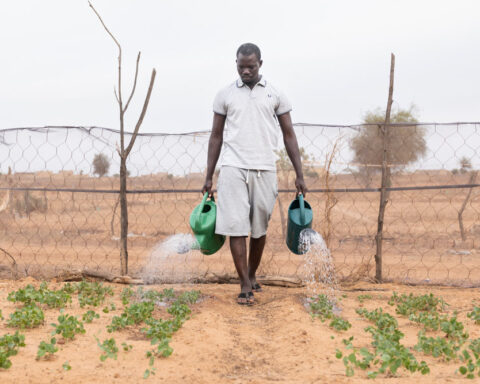Nigeria is one of 32 countries selected to benefit from a new initiative by the Food and Agriculture Organization (FAO) and the International Fund for Agricultural Development (IFAD) to revolutionize global agrifood systems, making them more sustainable, inclusive, and environmentally friendly.
The program, dubbed the Food Systems Integrated Program (FSIP), was launched during Agrifood System Day at the ongoing16th Conference of the Parties of the United Nations Convention to Combat Desertification (UNCCD COP16) in Riyadh, Saudi Arabia.
Funded by the Global Environment Facility (GEF), the FSIP aims to channel $282 million in GEF financing and leverage an additional $1.8 billion in co-financing to achieve global environmental benefits.
These include addressing biodiversity loss, mitigating land degradation, and combating climate change while improving food security, nutrition, and livelihoods.
The initiative focuses on key agrifood sectors, including crops such as maize, rice, and wheat; commodities like cocoa, palm oil, and soy; as well as livestock and aquaculture.
Other participating African countries include Ghana, Ethiopia, Angola, Burkina Faso, Chad, Eswatini, Kenya, Namibia, South Africa, Tanzania, and Uganda.
In Nigeria, the program is expected to address pressing challenges in the agricultural sector by fostering policies, investment plans, and sustainable practices.
This includes reducing methane emissions in rice farming and curbing deforestation linked to livestock and palm oil production.
The FSIP is designed to align with international environmental frameworks, including the Kunming-Montreal Global Biodiversity Framework, the Paris Agreement on Climate Change, and Land Degradation Neutrality commitments.
It builds on nearly a decade of GEF-backed initiatives such as the Good Growth Partnership and the Resilient Food Systems program.
The initiative also emphasizes aquaculture as a sustainable protein source and encourages integrated landscape management to reduce unsustainable land use in maize and wheat production.
The FSIP launch coincides with heightened global attention on food systems at recent UN environmental conferences, including the biodiversity-focused Agri-NBSAPs Initiative at CBD COP16 and the Harmoniya Initiative at UNFCCC COP29.
Despite the growing recognition of the agrifood sector’s role in climate action, less than 5% of global climate finance has been allocated to it.
This program seeks to reverse the trend by creating global coordination hubs on policy, governance, private sector investment, and knowledge sharing.
Over the next 12 months, a Global Coordination Project will oversee the design and rollout of 32 country-specific projects, ensuring alignment with global goals while generating localized benefits.
Hope for Nigeria’s Agrifood Sector
With Nigeria’s agrifood systems grappling with challenges such as deforestation, methane emissions, and unsustainable farming practices, the FSIP offers a promising pathway to enhance food security, improve livelihoods, and contribute to environmental sustainability.
By participating in this global effort, Nigeria stands to gain from innovative solutions and investments that can transform its agrifood systems into a model of sustainability and resilience.
By Dare Akogun








